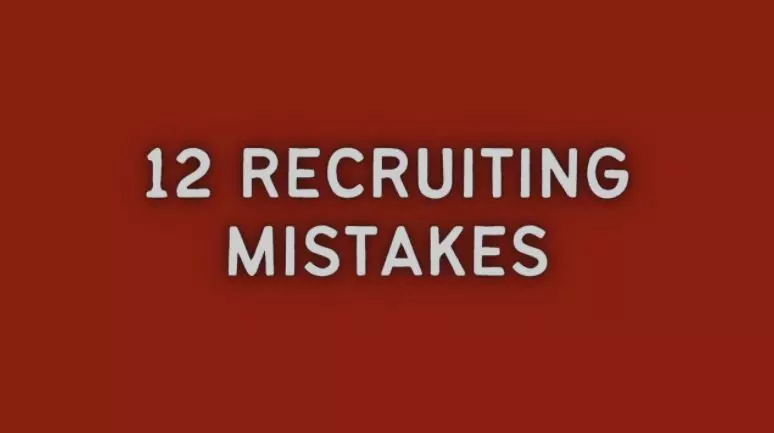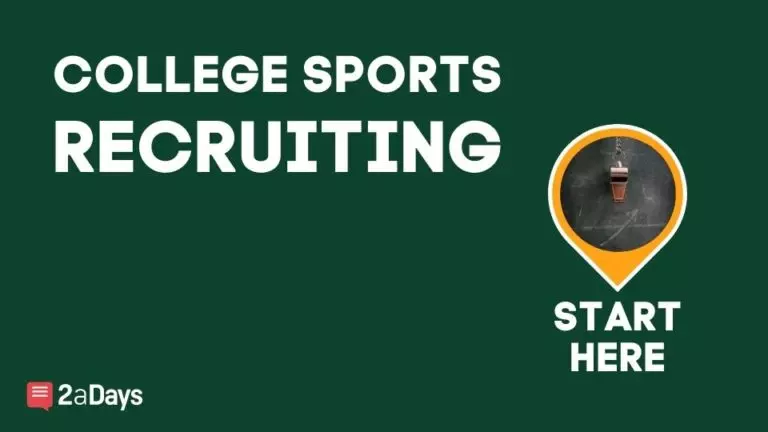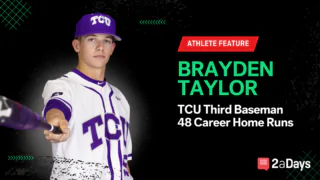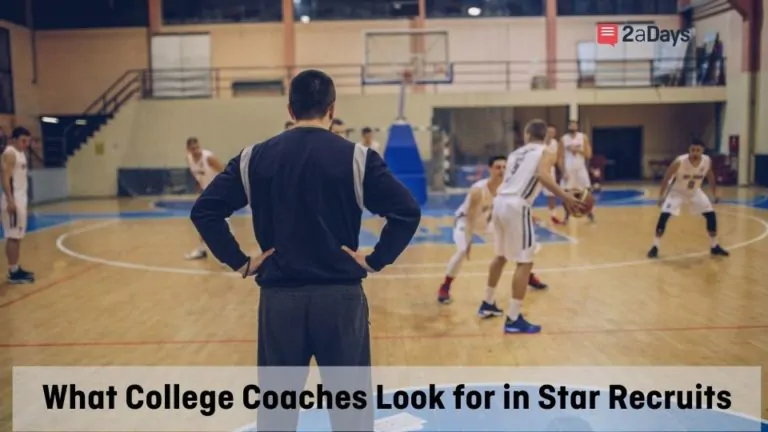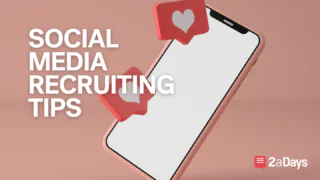Being recruited and looking for colleges is one of the highlights of being a high school athlete. This process is exciting but can also be very overwhelming, and because of that, athletes tend to make some mistakes along the way. College searches and the recruiting process require preparation, so we've put together a list of commonly made recruiting mistakes for you to avoid.
Related: Rate your Coaches
Waiting Until Senior Year to be Recruited
While it's possible to get recruited if you wait until your senior year to start reaching out to schools, it's not ideal. If you wait until your senior year to be recruited for college athletics, you might not be on the radar of your desired schools. It's best to start getting your name out there as early as possible: talking to coaches and researching and visiting schools should start as early as freshman year. Colleges are looking for possible recruits earlier every year, so it's crucial to start looking at the appropriate time to land that scholarship.
“I started my college search during my freshman year. I had a lot more opportunities and options. Some of my friends missed out, they thought ‘oh it'll be fine, I have time,' and before they knew it, other teammates and I were getting scholarship offers, and they weren't.” – Chris London, LaTech
Related: Rate Louisiana Tech University
Comparing Yourself to Other Players
You should avoid talking to a coach about other players. If you build the other player up too much, the attention is moved away from you. You should never speak badly of the other player either; your character will come into question. When it comes to this, it's best to focus on yourself and showcase your own abilities. The goal isn't to help the coach examine the other players; the goal is to show them what you have to offer.
Bragging About Yourself
When coaches are recruiting athletes, they look at them from many different angles. Not only do they want to see how you play, but they also want to see your work ethic and how you handle different situations. This information is important, but it's even more important that you don't over-express it. It's good to give the coaches facts and stats on yourself, but don't overstate them or state the obvious. If you're a dedicated team member, the coach will see that for themselves. Be humble and honest; let your work ethic and your character speak for themselves.
Related: Rate your Facilities
Poor Social Media Activities
Coaches aren't expecting you to be social media experts, but they want responsible and trustworthy athletes. Be smart about what you post; they will check your social media. Use your social media to market yourself, and don't post things you wouldn't want your coach to see. If you need advice on setting up your profiles to be viewed by recruiters, ask your high school coaches or a trustworthy administration personnel.
“I had a friend, we were going to be recruited by the same school, but she had some very inappropriate things on her Twitter, and she wasn't given an offer. Not sure if Twitter was the entire reason, but it sure didn't help.” – L'Muriell Thrower, Grambling
Related: Rate Grambling State University
Giving Up
Not every school you apply to will accept you, and that's okay. It doesn't mean you should give up. The more coaches and schools you connect with, the higher your chances are of being recruited. Time and effort has to be put in; it isn't an overnight success. The process doesn't stop with you emailing/calling the coach. The coach has to open your email or letter, he or she has to actually read it, they have to need athletes in your position, they have to verify your abilities, and you have to come to an agreement.
Searching for schools can be tiring, but keep working. Keep your search broad and then narrow your options down as you go; rejection is a part of life, and it's not personal.
Related: Rate your Campus Visits
Thinking Parents/Coaches are Going to Take Care of Your Recruiting
The recruiting process is your responsibility. While your parents or coaches can be supportive resources, you shouldn't rely on them to handle it for you. College coaches prefer to hear from their athletes directly.
“Athletes also get caught up in what I call the ‘Uncle Ed Syndrome.' It's wonderful if your Uncle Ed's best friend knows someone who plays golf with a college coach once a week, but that's not going to affect a coach's recruiting plans. Occasionally a direct connection to a college coach might get your information looked at; you still need to be an asset to the program to get more than just a look. Don't count on Uncle Ed to land your scholarship.” (USA Today)
Related: College Recruiting Advice to Parents from Parents
Targeting the Wrong Schools
When you begin your college search, it is important to be realistic. It would help if you looked for colleges that match with you not only athletically but also academically. Picking a school because your friends are going there or because you've wanted to since you were a kid is not a good decision unless you actually meet their requirements and they yours.
Not being realistic during your college search can cause unneeded confusion and disappointment. Don't try to reach out to a certain coach with high hopes when you could be honest with yourself from the start and shoot for where you know you can be successful. Just because your dream school has rejected you does not mean you don't have talent; your talent is just more useful elsewhere. Stay logical and honest during this step, and you've got it in the bag!
Don't Send Impersonal Emails
When emailing a coach, the goal is to make them interested in you. A short, basic email will easily be looked over and deleted. The key to a successful email is to make it as personal as possible. Introduce yourself properly and show them they should be interested in you, but also that you're interested in them. In the email, leave information about yourself at the bottom, including grade level, GPA, etc. You might also have to send more than one email to get the coaches' attention. An introductory email is necessary, and after that comes the follow-up emails. Please do some research on the coach, school, and program you're looking at before contacting them.
Related: Rowing Recruitment | Guide to Contacting Coaches
Overestimating Grades/Statistics
When you're communicating with college coaches, one of the worst things you could do is stretch the truth. If they check the info you give them, and if what you told them doesn't match what they find, you'll find yourself in a world of trouble. If you are worried that you aren't in the right place to be recruited, don't; coaches know that all athletes develop differently.
When it comes to grades, they are one of the most important aspects of recruiting; you shouldn't lie about these for any reason. Lying can reflect poorly on your character; if you lack in your grades, explain how you are trying to bring them up; if you lack on the field, explain what workouts you're doing to get better, don't lie.
Related: Harvard's Assistant Tennis Coach Talks Character, Grades, and Resource
Having a False Sense of Security
Most athletes contact schools, and once they get some form of a response, they automatically assume they're being recruited. This is not the case. Here are a few factors to help you identify if you are or aren't actually being recruited:
You're not being recruited when
- You receive information from a college admissions office
- You get invited to a camp
- A college coach “views” your profile on a recruiting site.
You are potentially being recruited when
- A coach calls you on the phone
- A coach comes to one of your games to specifically watch you play
- You get invited to go on an official visit
Not Preparing for Official Visits
Going on an official visit is your chance to view the school and see if it's the right fit for you, so be prepared. Have questions for the coaches and other athletes. Show them you're interested. This is the best time to get to know the coaches and let the coaches get to know you. First impressions are important, so make a good one; this is the time to make those personal face-to-face connections you can't get anywhere else.
A few ways to make a good impression are to
- Dress appropriately
- Show your fun side, let them see that you are a well-rounded individual and not just an athlete
- Continue to show them that you're interested in the program by asking questions
Many athletes mess up when it comes to official visits because they get too relaxed and think that their work is done since they were invited, but this is just the beginning of the end.
Over-Involved Parents
Parents can be overwhelming during this process because this is a stressful time for them too. It's important to stay true to yourself and focus on your own goals. Going somewhere because your parents want you to is not ok. Be honest with them. The worst thing you could do is go to a school where you have no desire to be.
We've put together a few helpful hints for parents to help them stay involved, but not too involved:
- Don't try to run everything – this is about your kid and their future
- Offer support, not opinions; your opinions, negative or positive, can affect your child's recruiting process
- Don't lose sight of the goal; the goal is to get your child recruited to a college they're really interested in, not one you want.
- Be honest with each other
This guide provides twelve mistakes commonly made by athletes regarding the recruiting process and college searches – I hope you use them wisely. Following these steps could remove stress from the process entirely. Being recruited is an exciting time, and you should enjoy every minute of it. Everyone makes mistakes, so just stay focused and be prepared for anything. You've got this!
* Originally published on August 30, 2021, by Erin Smith
